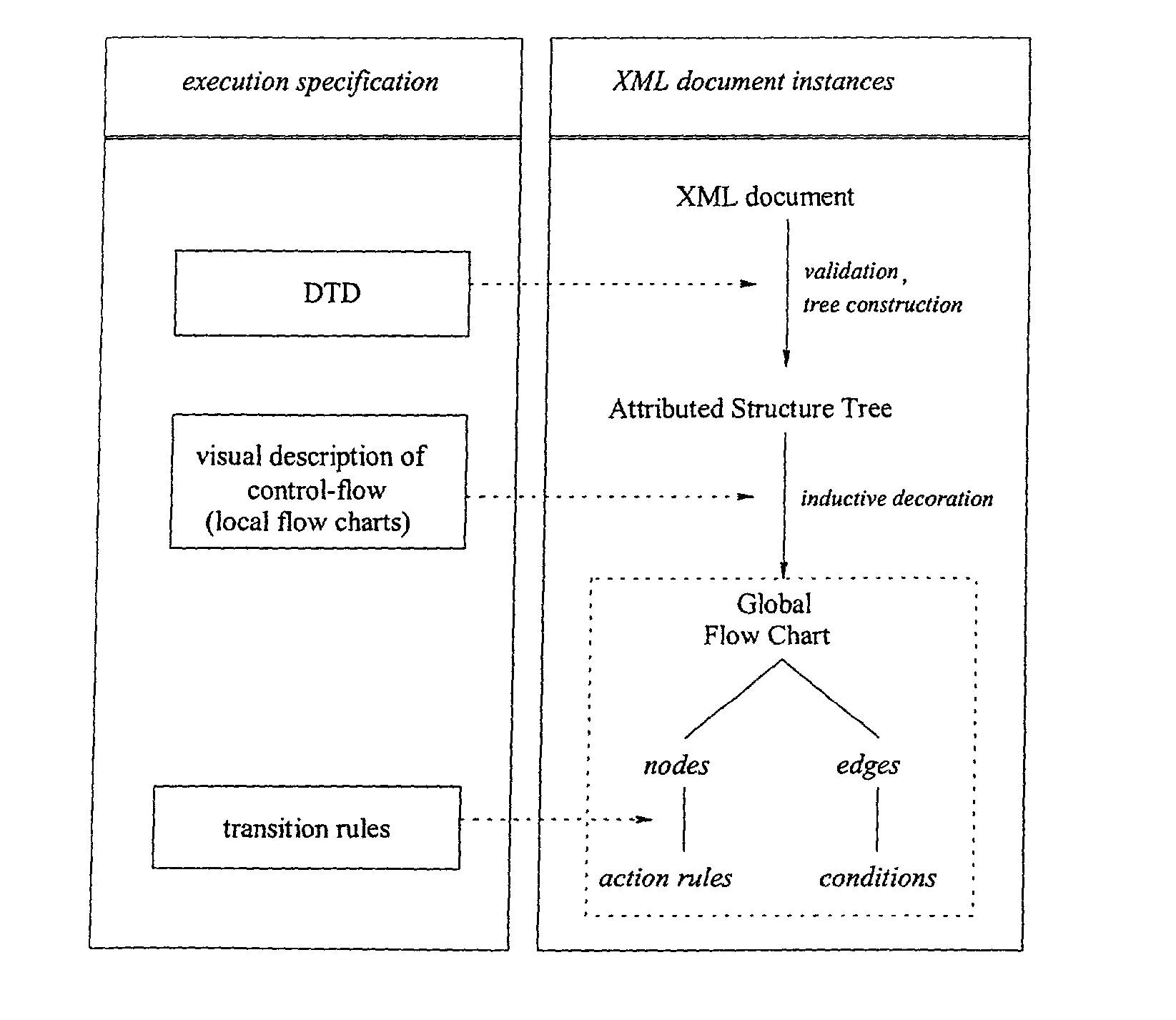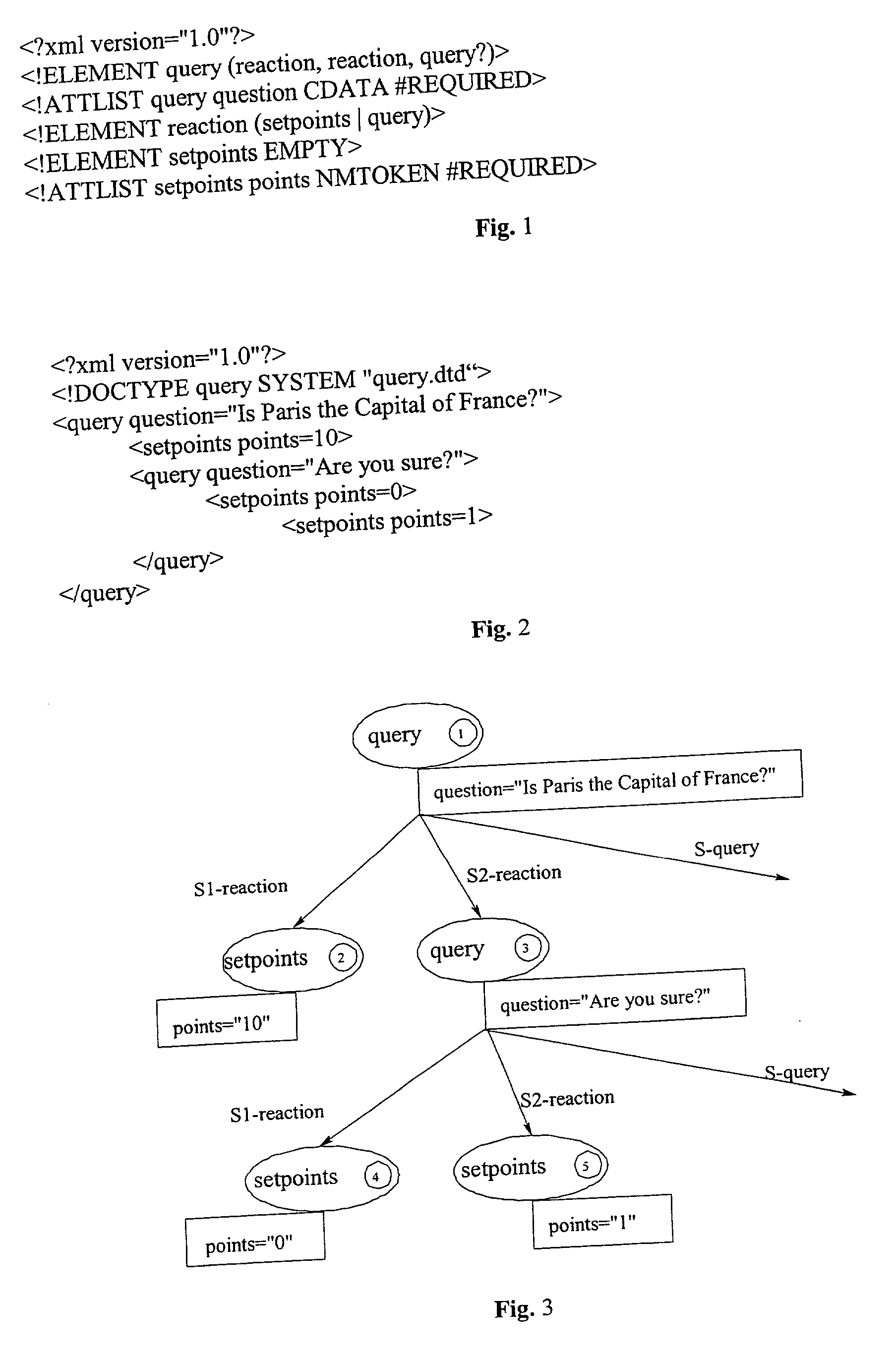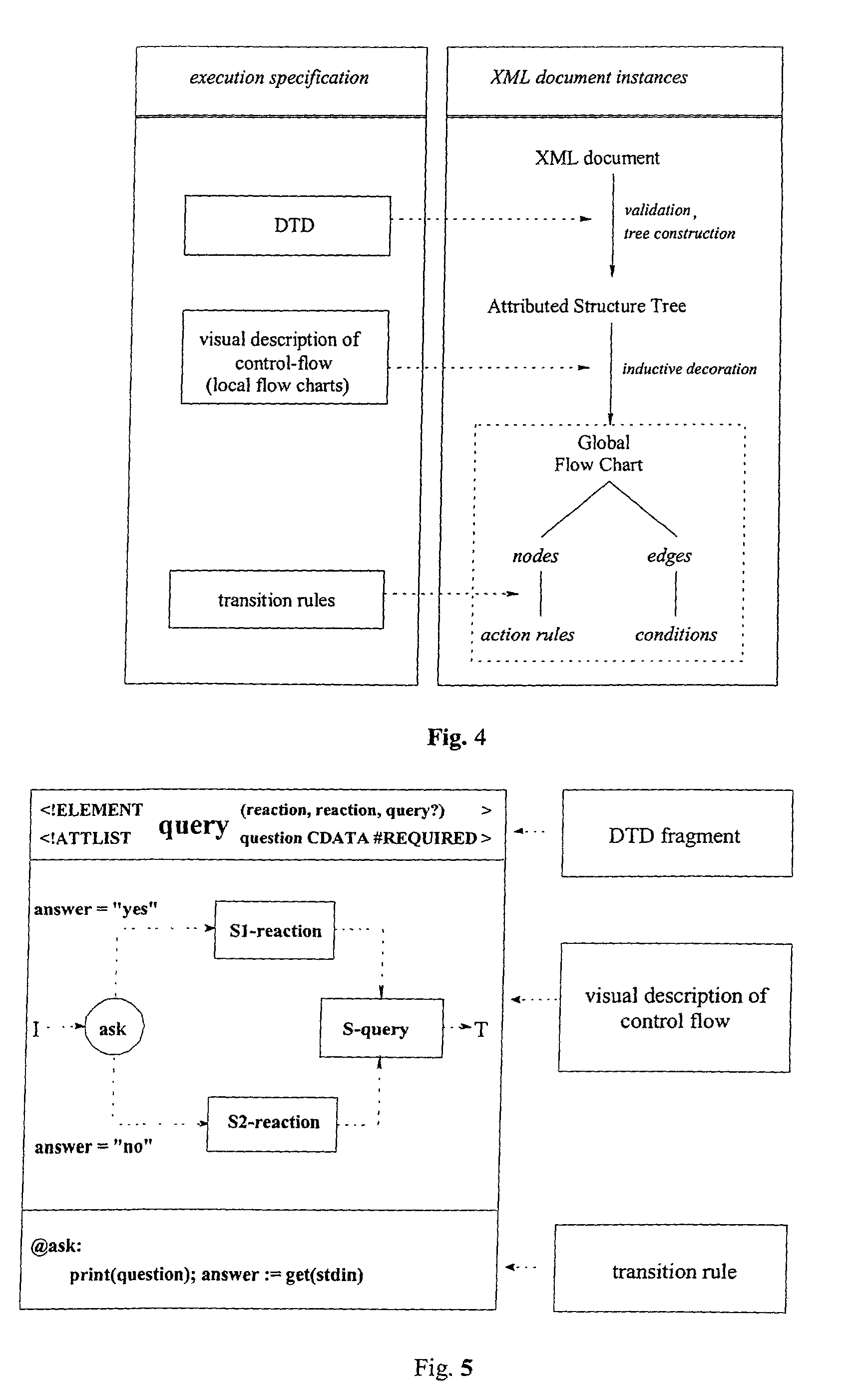Methods and systems for direct execution of XML documents
a technology of xml documents and methods, applied in the direction of specific program execution arrangements, program control, instruments, etc., can solve the problems of complex treatment, complex general-purpose programs, complex programs,
- Summary
- Abstract
- Description
- Claims
- Application Information
AI Technical Summary
Benefits of technology
Problems solved by technology
Method used
Image
Examples
Embodiment Construction
[0049] FIG. 1 shows a sample DTD with an element query having three components, two of type action and an optional component of type query. The attribute list of the element query consists of the single attribute question, being a required character data attribute. The element action is composed by either of the elements setpoints or query. The element setpoints has no components and the single attribute points.
[0050] FIG. 2 represents a valid document with respect to the sample DTD of FIG. 1 while referring to the DTD ,,query.dtd" as given in FIG. 1. This instance is used as a sample document for the further description below.
[0051] FIG. 3 shows a corresponding possible mapping of the document in FIG. 2 to an attributed structure tree (AST). Such an AST is an alternative graphical representation of the structure of an XML document. The nodes numbered 1 and 3 are instances of the element query. They have the two required action siblings accessible as S1-action and S2-action, and the...
PUM
 Login to View More
Login to View More Abstract
Description
Claims
Application Information
 Login to View More
Login to View More - R&D
- Intellectual Property
- Life Sciences
- Materials
- Tech Scout
- Unparalleled Data Quality
- Higher Quality Content
- 60% Fewer Hallucinations
Browse by: Latest US Patents, China's latest patents, Technical Efficacy Thesaurus, Application Domain, Technology Topic, Popular Technical Reports.
© 2025 PatSnap. All rights reserved.Legal|Privacy policy|Modern Slavery Act Transparency Statement|Sitemap|About US| Contact US: help@patsnap.com



